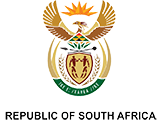Dear Fellow South African,
To build an inclusive economy that creates jobs and reduces poverty, South Africa needs a capable, ethical and developmental state.
A fundamental feature of such a state is a public service that is professional and competent. It needs people with skills, experience, foresight and integrity, who must act in the best interests of the people. They must be able to resolve conflict, forge partnerships and build dynamic institutions that go beyond meeting their basic mandates.
“We are working to build a public service staffed by men and women who are professional, skilled, selfless and honest. This includes implementation of the Professionalisation of the Public Service Framework.”#RamaphosaQandA pic.twitter.com/Cd3ShyLuHk
— The Presidency 🇿🇦 (@PresidencyZA) March 9, 2023
The diversity and political pluralism reflected in the composition of the new National Executive will put these qualities to the test. For their part, public servants should be commended for demonstrating their ability to manage the transition to the new administration.
The Government of National Unity has identified as one of its priorities the rebuilding of the capability of the state and creating a professional public service.
This work is already well underway. The National Framework for the Professionalisation of the Public Service was adopted by Cabinet in 2022 to guide public service reform.
The Department of Public Service and Administration (DPSA) has already issued two directives giving effect to the framework.
The framework aims to build meritocracy in the public service. Recruitment and selection processes are being overhauled, as are performance management systems. Competency-based assessments and integrity tests are being introduced. These tests will be used across the public sector, including to persons appointed into political offices such as ministerial advisers and chiefs of staff.
The induction of new public servants is now mandatory. Those seeking promotion will have to complete compulsory courses with the National School of Government, including Nyukela which is a mandatory programme for pre-entry into senior management.
The professionalisation framework is developmental in outlook, striving to lower barriers to entry for young people who aspire to careers in the public service
One of the DPSA directives issued earlier this year waives the experience requirement for entry level posts with no supervisory responsibilities. It also makes provision for verification of academic qualifications from applicants who do not have their degree certificates because of outstanding student debt.
A capable state requires capable leaders.
The National School of Government continues to grow its suite of executive education programmes designed for elected officials and executive managers. These involve formal learning programmes delivered by renowned experts, high-level masterclasses and seminars on issues ranging from the art of execution to ethics and economic governance. There are also flagship programmes tailored for accounting officers and induction training for boards of state-owned enterprises.
One of the other key aspirations of the professionalisation framework is the depoliticisation of the public service. Those who work in the state need to be insulated from undue political interference and vested interests.
State capture provided a bitter lesson on the vulnerabilities of the public sector to interference by private business interests. As the Government of National Unity, as a country, we must ensure that this never happens again. We must actively guard against the forms of executive overreach witnessed in the past.
We must strive to stabilise and ensure greater continuity in the public service. In this regard, the professionalisation framework brings greater stability to the senior ranks of the public service by extending the tenure of Directors-General and provincial Heads of Departments, subject to them meeting the requirements of the position and regular performance reviews.
Leaders in national and provincial governments will undergo training and development programmes throughout the seventh administration, starting with the National School of Government’s ethical leadership and oversight programme. Other areas of training include economic governance, scenario planning and digital transformation. It is encouraging that traditional leaders are also prioritising their development through short learning programmes and formal qualifications.
A united government cannot succeed without a united public service.
While there may be a temptation for members of the Executive to favour the policies of their own political parties, we are working to develop the Medium-Term Development Plan and implement the programme of government as a united government, not as individual parties.
Within the public service, professionalism, integrity and commitment to the policies of the government of the day must transcend all political and ideological affiliations.
If we continue along the path of collaboration and cooperation, the Government of National Unity has the means and political will to transform the public service into a powerful driver of service delivery, economic growth and development.
With best regards,

- Tags:
- Public servants /
- Public service /
- National School of Government /
- Service delivery /
- National Framework for the Professionalisation of the Public Service /
- Department of Public Service and Administration
Tweet




